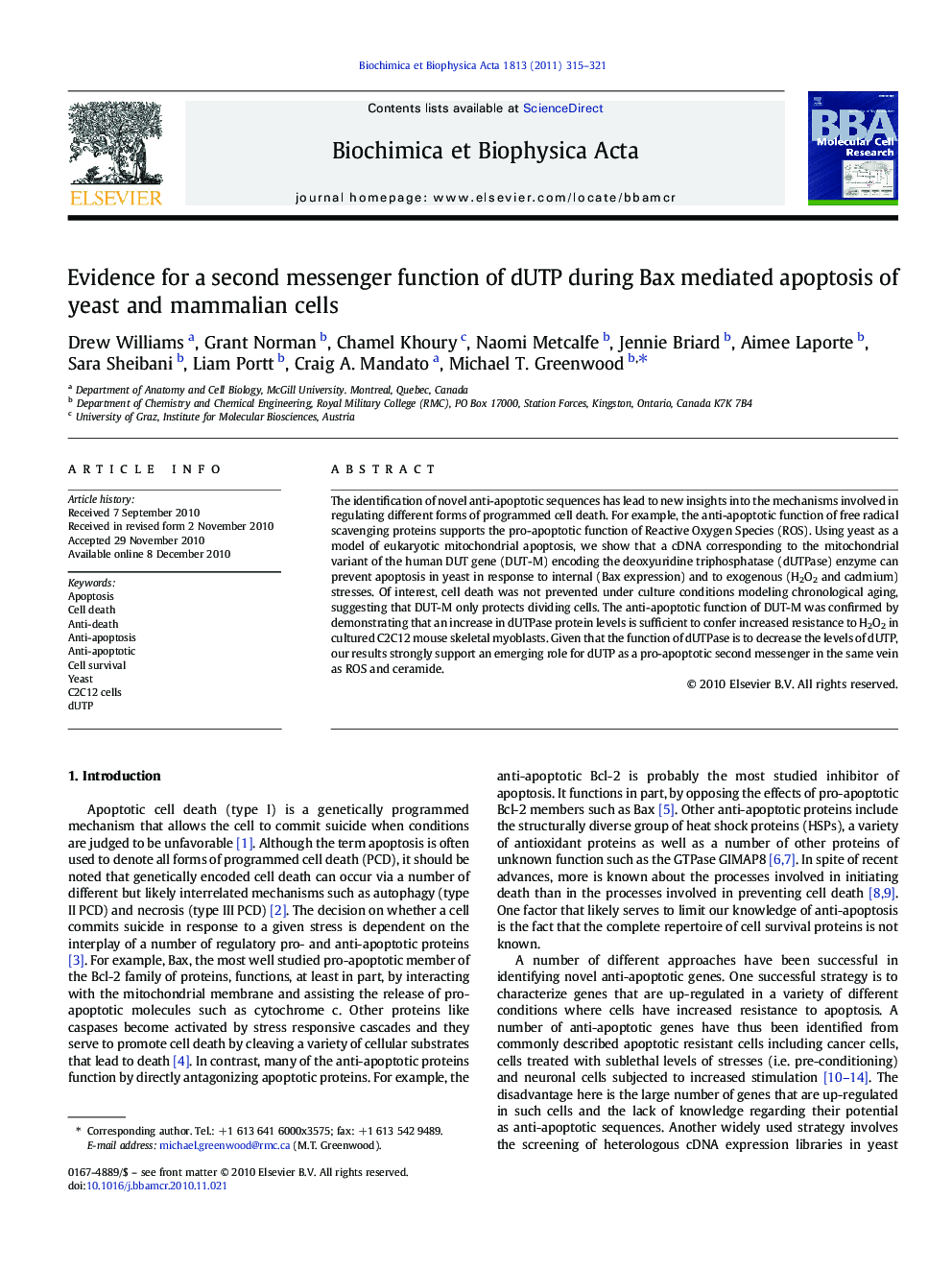| کد مقاله | کد نشریه | سال انتشار | مقاله انگلیسی | نسخه تمام متن |
|---|---|---|---|---|
| 1950843 | 1055716 | 2011 | 7 صفحه PDF | دانلود رایگان |

The identification of novel anti-apoptotic sequences has lead to new insights into the mechanisms involved in regulating different forms of programmed cell death. For example, the anti-apoptotic function of free radical scavenging proteins supports the pro-apoptotic function of Reactive Oxygen Species (ROS). Using yeast as a model of eukaryotic mitochondrial apoptosis, we show that a cDNA corresponding to the mitochondrial variant of the human DUT gene (DUT-M) encoding the deoxyuridine triphosphatase (dUTPase) enzyme can prevent apoptosis in yeast in response to internal (Bax expression) and to exogenous (H2O2 and cadmium) stresses. Of interest, cell death was not prevented under culture conditions modeling chronological aging, suggesting that DUT-M only protects dividing cells. The anti-apoptotic function of DUT-M was confirmed by demonstrating that an increase in dUTPase protein levels is sufficient to confer increased resistance to H2O2 in cultured C2C12 mouse skeletal myoblasts. Given that the function of dUTPase is to decrease the levels of dUTP, our results strongly support an emerging role for dUTP as a pro-apoptotic second messenger in the same vein as ROS and ceramide.
Research highlights
► dUTPase is capable of preventing Bax induced cell death in yeast.
► dUTPase prevents oxidative stress mediated cell death in yeast.
► dUTPase prevents oxidative stress mediated cell death in cultured mammalian cells.
► The anti-apoptotic function of dUTPase suggests that dUTP is a pro-apoptotic second messenger that serves to mediate the effects of stress on cell death.
Journal: Biochimica et Biophysica Acta (BBA) - Molecular Cell Research - Volume 1813, Issue 2, February 2011, Pages 315–321